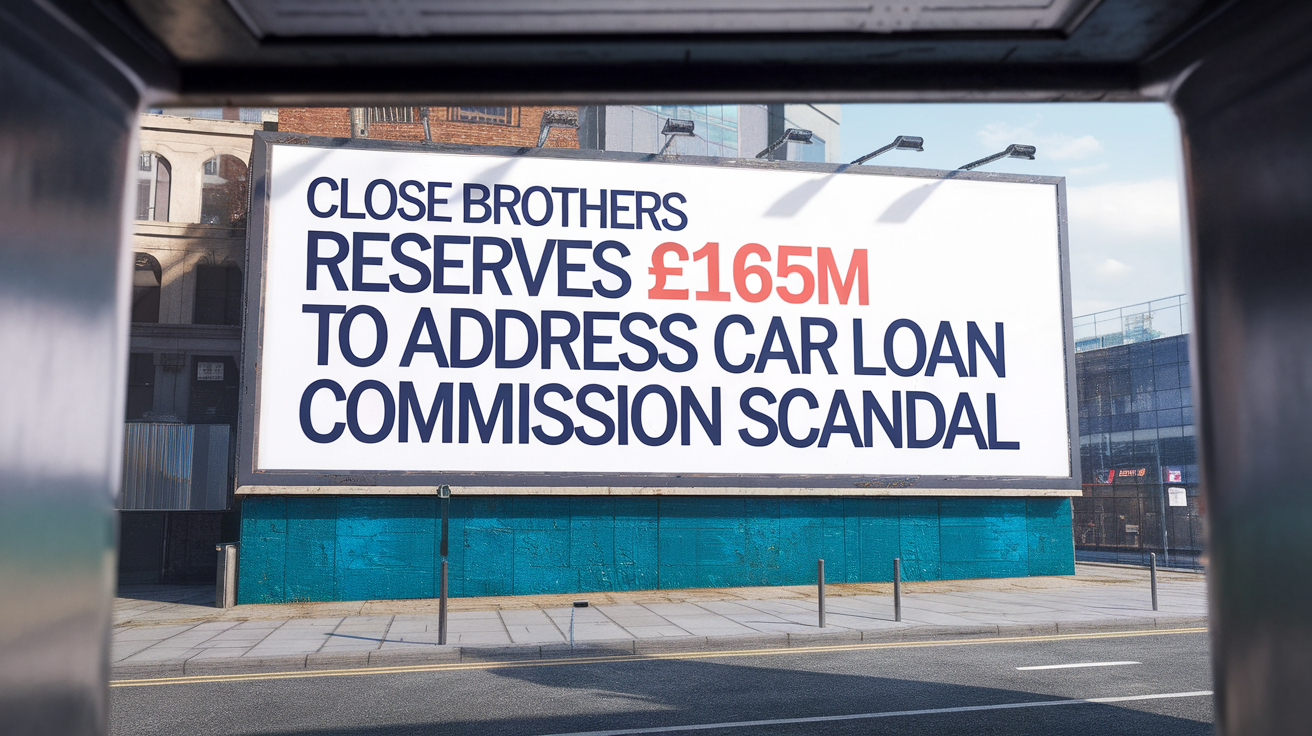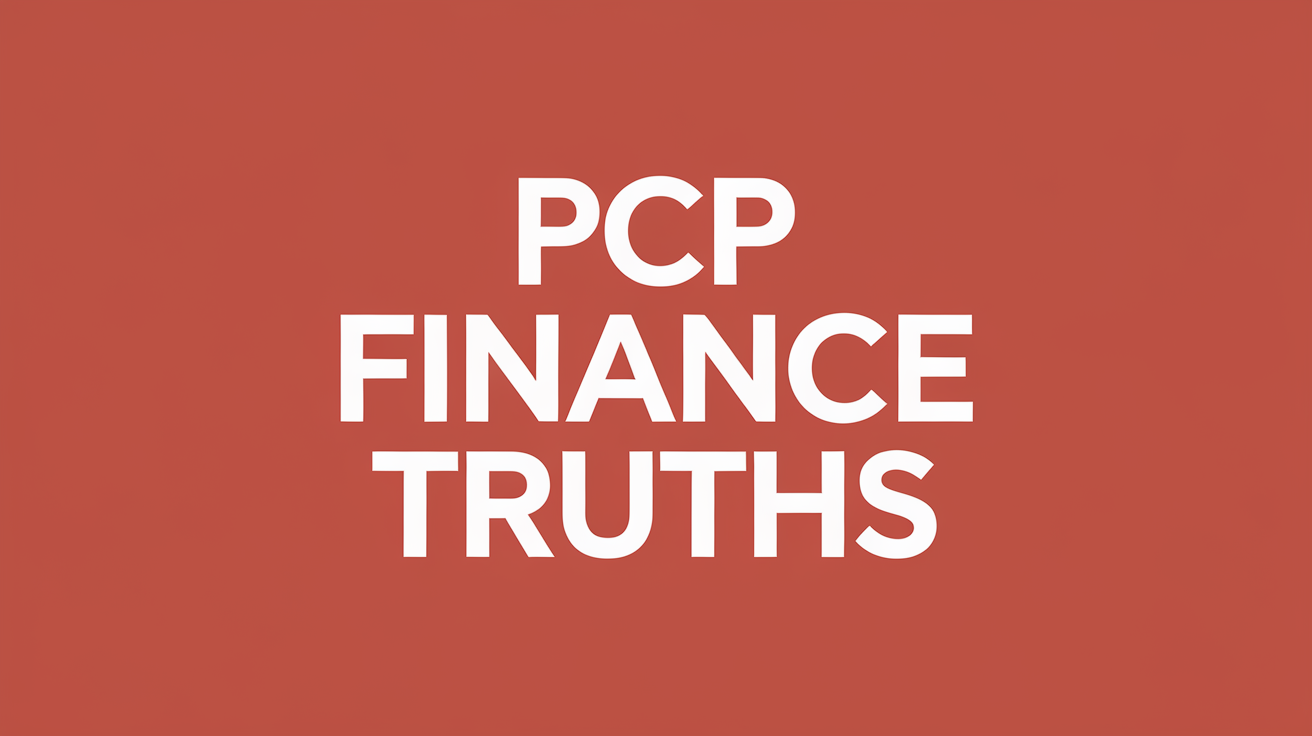Just as the UK motor finance landscape faces upheaval, Close Brothers has announced a provision of up to £165 million to cover potential legal and compensation costs stemming from the car loan commission scandal. This follows a significant court ruling against the lender and FirstRand Bank regarding undisclosed commission payments to dealers. As the Financial Conduct Authority (FCA) continues its investigation, you should be aware that this situation could lead to substantial changes in compensation practices within the industry.
Financial Impact Assessment
The ongoing car loan commission scandal has led Close Brothers to undertake a comprehensive financial impact assessment, revealing a potential need to set aside up to £165 million in the first half of the financial year. This significant provision is aimed at addressing the anticipated legal and compensation costs stemming from claims associated with unlawful commission payments.
Provision Details
About the provision, Close Brothers has indicated that this estimate was derived from a thorough examination of the implications of the court case and the ongoing investigation by the Financial Conduct Authority (FCA). However, the lender cautions that the final costs could vary significantly, either exceeding or falling below the current estimate.
Capital Implications
Any effects on your capital ratio are expected due to this sizeable provision. Close Brothers has stated that while the capital ratio might be influenced, it is projected to remain above regulatory requirements, ensuring that you can absorb the financial impact of these provisions adequately.
Due to the potential costs arising from the claims, you may observe fluctuations in Close Brothers’ capital position. The firm is focused on maintaining a robust financial standing, which involves cancelling dividends and raising £400 million to bolster its balance sheet amidst the uncertainties posed by the ongoing FCA investigation. This proactive strategy is designed to ensure long-term stability and resilience against any legal repercussions you might encounter in the financial markets.
Regulatory Framework
Now, understanding the regulatory framework surrounding the motor finance industry is important for comprehending the wider implications of the car loan commission scandal. The Financial Conduct Authority (FCA) plays a pivotal role in overseeing financial services in the UK, ensuring that practices remain fair and transparent for consumers. The recent changes, particularly the ban on discretionary commission arrangements (DCAs), underscore the FCA’s commitment to protecting borrowers from potential exploitation by dealers and brokers.
FCA Investigation
By initiating an investigation into commission practices within the motor finance sector, the FCA has underscored its dedication to consumer protection and regulatory oversight. This investigation will not only address past grievances but may also lead to significant reforms in how car loans are managed and marketed in the future, ultimately benefiting you as a consumer.
Legal Precedents
After the landmark court case involving Close Brothers and FirstRand Bank, there have been significant legal precedents set that could affect the motor finance industry. The court ruled that it was unlawful for lenders to pay commissions to car dealers without notifying borrowers, a decision that could result in substantial compensation claims against lenders.
In addition, this ruling may lead to a transformative shift in the industry, enforcing greater accountability for lenders in their commission structures. As a consumer, you stand to potentially benefit from these changes, which could result in a more transparent and fair lending environment. The FCA’s impending decision on further actions by December could open the door for a compensation scheme funded by lenders, representing a significant financial risk for companies like Close Brothers, but a positive outcome for affected borrowers.
Industry Context
While the car finance sector grapples with the fallout from the commission scandal, the implications are widespread. The Financial Conduct Authority (FCA) has stressed the need for transparency and accountability within the industry, which has already faced a surge in consumer complaints. As a result, you may notice increased scrutiny over lending practices, making it necessary for borrowers to stay informed about their rights and options.
Market Position
The UK motor finance market is largely dominated by a few key players, with Close Brothers and Lloyds at the forefront. Together, these providers account for a significant share of the industry, impacting how car loans are structured and how consumer trust is managed. You may find that the reliance on discretionary commission arrangements has raised concerns and changed lending procedures across the market.
Sector-wide Implications
For many in the motor finance sector, this scandal is a wake-up call. It has prompted lenders to reevaluate their practices and consider the potential need for reforms. With the FCA potentially launching a customer compensation scheme and escalating regulatory actions, you should be aware that the landscape of car loan agreements may shift significantly, affecting your future borrowing experiences.
Indeed, the repercussions of this scandal extend beyond Close Brothers, signalling a potential overhaul of industry standards. As consumer trust becomes a priority, lenders will likely face increased pressure to adopt more transparent practices in their operations. This could lead to a more competitive and fairer landscape for consumers, where you can expect improved loan terms and reduced costs associated with car financing.
Commission Scheme Analysis
Your understanding of the commission scheme is vital as it sheds light on the controversial practices within the vehicle loan industry. Close Brothers recently announced it will set aside up to £165 million to address potential legal and compensation costs linked to unlawful commission arrangements. The fallout from this scandal has impacted major lenders, highlighting significant shifts in regulatory oversight.
Historical Practices
To grasp the current landscape, it is necessary to examine the historical practices that led to the commission scandal. Between 2007 and 2021, car dealerships and brokers could set interest rates on loans, earning substantial commissions without borrowers’ knowledge. Such practices raised numerous consumer complaints and prompted regulatory scrutiny.
Regulatory Violations
Before the FCA intervened, the vehicle finance market was rife with opaque practices, particularly regarding discretionary commission arrangements (DCAs). These arrangements incentivised dealers to impose higher interest rates, often to the detriment of borrowers. The FCA banned DCAs in 2021 due to concerns over their impact on consumer welfare.
Commission arrangements, particularly those concerning vehicle loans, have been exposed as potentially harmful to consumers. The landmark ruling against Close Brothers and FirstRand Bank indicates that lenders paid commissions unlawfully, impacting borrowers’ financial stability. With rising complaints and ongoing regulatory investigations, it is evident that many consumers may seek substantial compensation, paving the way for a possible customer compensation scheme. The FCA’s decision in December will be critical to determining the future landscape of motor finance.
Legal Proceedings
Many developments have occurred in the legal proceedings surrounding the car loan commission scandal. Close Brothers has been proactive in evaluating the financial implications, setting aside up to £165 million to potentially cover legal and compensation costs. The case has attracted significant attention due to its implications for both consumers and lenders in the vehicle finance sector.
Court Rulings
An important court ruling last October determined that it was unlawful for lenders to pay commissions to car dealers without the awareness of borrowers. This landmark decision has raised questions about the legality of previous commission arrangements and their impact on consumers.
Appeal Process
On the subject of appeals, the outcome remains uncertain as you await further developments. Close Brothers has signalled that it is prepared for potential challenges against the court’s ruling but acknowledges the significant uncertainty that still exists.
Further complicating matters, the appeal process may yield varying results that could affect the overall financial responsibilities of Close Brothers. You should understand that the lender’s ultimate liability might be either elevated or diminished depending on the outcome of these appeals. As you follow this situation, be aware that the Financial Conduct Authority (FCA) is closely monitoring the developments, which may influence the broader landscape of motor finance in the UK.
Consumer Impact
Unlike many financial scandals, the car loan commission issue directly affects you as a consumer. As a borrower, you may have unwittingly paid inflated interest rates due to undisclosed dealer commissions. This has led to widespread complaints and heightened scrutiny from the FCA, creating an environment where consumers are seeking answers and potential redress.
Compensation Prospects
Below is a summary of your options regarding compensation. The landmark court ruling against Close Brothers could signify significant payouts for affected consumers, as the FCA is investigating potential compensation schemes. Your ability to reclaim funds hinges on the FCA’s decision, expected by December.
Customer Rights
One of the key considerations in this scandal is your customer rights. You are entitled to transparency regarding the interest rates and commission arrangements linked to your car loan. If you believe you were misled or overcharged, you can file complaints with the FCA and explore compensation avenues.
Due to the ramifications of the court ruling, you have solid grounds to assert your customer rights in the car finance market. Understanding your rights means you can take proactive steps to seek justice if you were subjected to unfair practices. The FCA’s investigation sets a robust precedent for challenging any unlawful commission arrangements that may have affected your financial well-being. Stay informed about potential compensation schemes that could address your grievances, thereby empowering you as a consumer navigating this complex landscape.
Final Words
Upon reflecting on the significant reserve of £165 million that Close Brothers has set aside to address the fallout from the car loan commission scandal, you should be aware that this move signals both the gravity of the situation and the uncertainty that lies ahead. As a key player in the motor finance sector, Close Brothers’ actions may impact your understanding of the industry as it navigates ongoing regulatory scrutiny and potential consumer compensation. Staying informed about these developments will be crucial for you as an interested stakeholder in the financial landscape.
FAQ
Q: Why has Close Brothers set aside £165 million?
A: Close Brothers has estimated that it may need to reserve up to £165 million to cover potential legal and compensation costs stemming from the car loans commission scandal. This estimate follows a thorough assessment of the ongoing court case and the investigations by the Financial Conduct Authority (FCA) regarding the legality of commission arrangements made between 2007 and 2021. The financial provider acknowledged that there remains significant uncertainty concerning the outcome of appeals and the FCA’s investigation.
Q: How might this scandal affect customers who took out car loans?
A: The car loans commission scandal has raised serious concerns about the fairness of commission arrangements between car dealerships and finance providers. Consumers who were impacted may have been charged higher interest rates without their knowledge due to undisclosed commission payments to dealers. If the FCA determines that these arrangements were harmful, it could lead to a compensation scheme for affected customers, potentially costing the lending companies billions. The FCA is set to make decisions regarding further actions by December.
Q: What impact will the scandal have on Close Brothers’ financial standing?
A: In response to the potential financial implications of the scandal, Close Brothers has cancelled its dividend and announced plans to raise £400 million to strengthen its balance sheet. While it anticipates that its capital ratio will be impacted, the company has stated that it expects to remain above regulatory requirements. This positioning is intended to ensure that Close Brothers is well-equipped to absorb the estimated provision for potential costs arising from the scandal.









